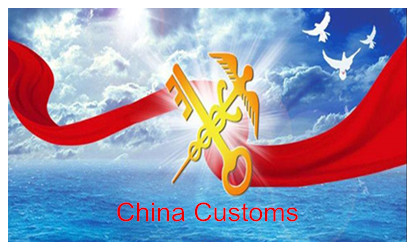 Administration of Customs are 15 departments, governing 6 subordinate public institutions, 4 social institutions and 3 institution stationed abroad. The Supervision Dept. of Central Commission for Discipline Inspection sets a Discipline Inspection & Supervision Bureau in the General Administration of Customs.
Administration of Customs are 15 departments, governing 6 subordinate public institutions, 4 social institutions and 3 institution stationed abroad. The Supervision Dept. of Central Commission for Discipline Inspection sets a Discipline Inspection & Supervision Bureau in the General Administration of Customs.Currently, China has class-I 253 ports approved by the state and nearly 200 class-II ports approved by provincial governments. According to the Customs Law of the People’s Republic of China and applicable laws and regulations, China customs mainly undertake four basic tasks, i.e. exercise supervision and control over the means of transportation, goods, and articles entering or leaving the territory; collect customs duties and other taxes and fees; uncover and suppress smuggling; work out customs statistics and handle other customs operations, and seven duties including customs clearance monitoring, tax collection and management, processing trade and protective tariff supervision, customs statistics, customs inspection, smuggling strike, and port management.
China Customs carry out the work guideline of “administration based on the laws, holding the pass for the country, serving economy, and promoting development” and the team construction requirement of “strong politics, skillful business operation, and trustworthiness”.
(Articles prohibited or restricted for import and export) Articles prohibited to enter the country
 1. Weapons, emulated weapons, ammunitions and explosives;
1. Weapons, emulated weapons, ammunitions and explosives;
2. Counterfeit currency and securities;
3. Presswork, film, photo, disc, movie, tape, video, laser video disk, computer storage medium and others that may do harm to China’s politics, economy, culture, and moral;
4. Severe toxicants;
5. Opium, morphine, heroin, Marijuana, and other addictive narcotic and psychoactive drugs;
6. Animals, plants, and their products with dangerous bacteria, pests, and other harmful organisms; and
7. Foods, drugs and other articles that may affect human and livestock health, come from an epidemic-stricken area, and can produce or breed infectious disease.
Articles prohibited to leave the country
1. All those prohibited to enter the country;
2. Script, presswork, film, photo, disc, movie, tape, video, laser video disk, computer storage medium and others that involve in national secrets;
3. Precious cultural relics and others prohibited to leave the country; and
4. Endangered and previous animals, plants (including specimen) and their seeds and reproductive materials.
 Ask Questions ?
Ask Questions ?